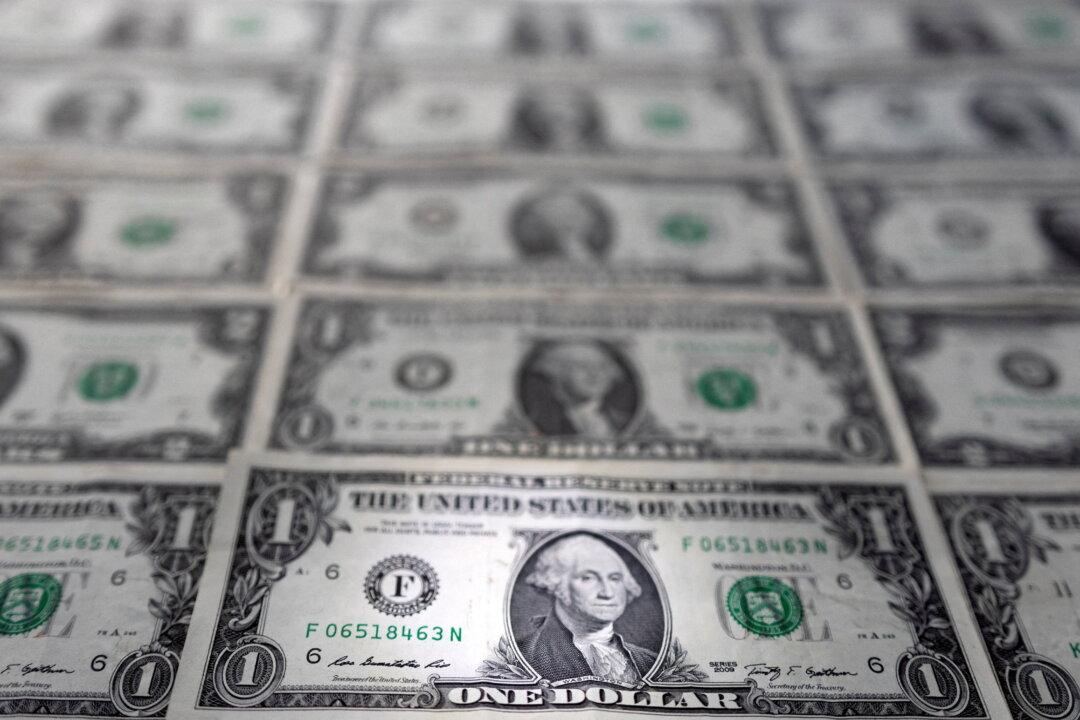The U.S. dollar will continue to remain dominant as long as the Federal Reserve continues with its aggressive policy of raising interest rates and unloading bonds bought during the COVID-19 pandemic, says a poll of forex strategists by Reuters.
“We’ve got some aggressive tightening coming up this year from the Fed. We think the fed funds rate will probably hit 3 percent in the first quarter of next year, but [they could] even be cutting rates by the final quarter of 2023,” Chris Turner, global head of markets research at ING, said to Reuters.





